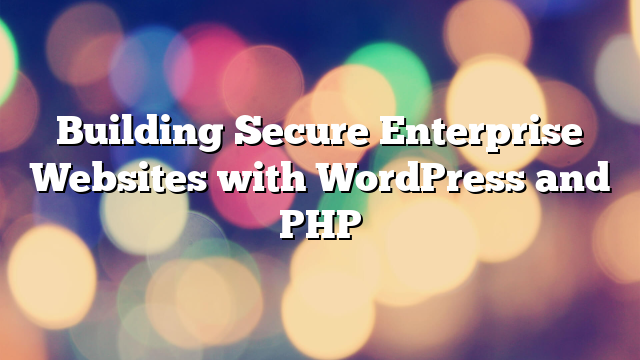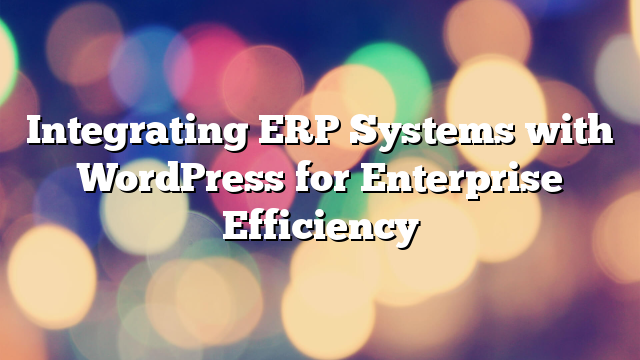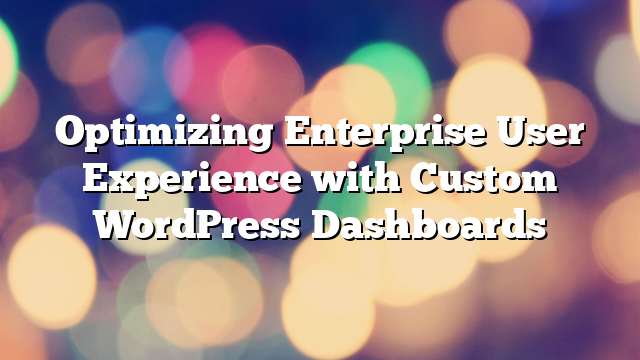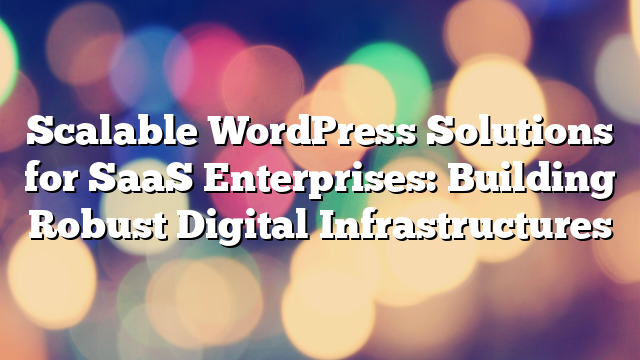Building Secure Enterprise Websites with WordPress and PHP
01.09.2024

In today’s digital landscape, security is a top priority for enterprise websites. With the increasing prevalence of cyber threats, enterprises must ensure that their web platforms are not only functional but also secure. WordPress, combined with PHP, offers a robust solution for building secure and scalable enterprise websites. At our enterprise web development services, we specialize in creating secure WordPress solutions that meet the stringent security requirements of enterprise clients. This article explores how WordPress and PHP can be leveraged to build secure enterprise websites.
The Importance of Security in Enterprise Websites
Enterprise websites often handle sensitive data, including customer information, financial transactions, and proprietary business information. As such, security is not just a feature—it is a critical requirement. Here’s why security is paramount for enterprise websites:
- Data Protection: Safeguarding sensitive information from unauthorized access and breaches.
- Regulatory Compliance: Ensuring compliance with data protection regulations such as GDPR and CCPA.
- Reputation Management: Protecting the company’s reputation by preventing security incidents that could damage trust.
- Business Continuity: Ensuring that the website remains operational and secure even under attack.
WordPress Security Features
WordPress is a powerful and flexible CMS, but its popularity also makes it a target for cyberattacks. However, with the right configurations and practices, WordPress can be a secure platform for enterprise websites:
- Regular Updates: Keeping WordPress core, themes, and plugins updated to address known vulnerabilities.
- Strong Authentication: Implementing strong passwords, two-factor authentication (2FA), and secure login procedures.
- Role-Based Access Control: Limiting access to the WordPress admin area based on user roles and permissions.
- SSL/TLS Encryption: Encrypting data transmission between the server and users with SSL/TLS certificates.
- Security Plugins: Using security plugins such as Wordfence or Sucuri to add layers of protection and monitor for threats.
Enhancing Security with PHP
PHP, the scripting language behind WordPress, plays a crucial role in building secure enterprise websites. Here’s how PHP can be used to enhance website security:
- Input Validation and Sanitization: Ensuring that all user inputs are validated and sanitized to prevent SQL injection and cross-site scripting (XSS) attacks.
- Secure Session Management: Implementing secure session handling practices to prevent session hijacking and fixation.
- Error Handling: Properly handling and logging errors without exposing sensitive information to users.
- Data Encryption: Encrypting sensitive data stored in databases to protect it from unauthorized access.
- Server Configuration: Configuring the server environment to enhance security, including disabling unnecessary PHP functions and securing file permissions.
Best Practices for Securing WordPress and PHP Websites
Building a secure enterprise website with WordPress and PHP involves following best practices at every stage of development and deployment:
- Regular Security Audits: Conducting regular security audits to identify and address potential vulnerabilities.
- Backup and Recovery: Implementing automated backup solutions and disaster recovery plans to ensure data integrity.
- Monitoring and Logging: Continuously monitoring website activity and logging events to detect and respond to security incidents promptly.
- Security Awareness Training: Educating users and administrators about security best practices and potential threats.
- Use of Trusted Plugins and Themes: Only using plugins and themes from trusted sources and regularly reviewing them for security updates.
Real-World Applications: Securing Enterprise Websites
Enterprises across various industries can benefit from a secure WordPress and PHP foundation. Here are some examples:
- E-Commerce Platforms: Protect customer data and payment information with strong security measures and compliance with PCI-DSS standards.
- Corporate Websites: Safeguard sensitive company data and ensure that corporate communications remain secure and private.
- Content-Heavy Websites: Protect intellectual property and ensure that content delivery is secure and reliable.
- Web Applications: Securely manage user data, transactions, and communications within complex web applications.
Conclusion: Building Secure Enterprise Websites with WordPress and PHP
Security is a critical aspect of enterprise web development, and WordPress, combined with PHP, offers a strong foundation for building secure and scalable websites. At our enterprise web development services, we are committed to implementing the highest security standards in every project we undertake. Whether you need to secure an existing website or develop a new one, our expertise ensures that your enterprise website is protected against evolving threats. Contact us today to learn how we can help you build a secure enterprise website with WordPress and PHP.



